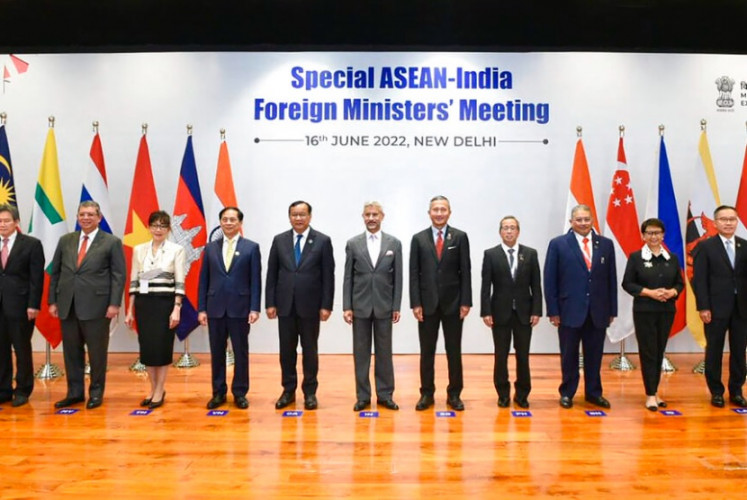Coal and climate justice
The biggest disappointment is the lack of passion shown by developed countries to commit to climate financing and assistance to open greater access to renewable energy for developing and poor countries.
Change Size
 Window of climate opportunity: A conference is seen through a window at the media center during the UN Climate Change Conference (COP26), in Glasgow, Scotland, on Nov. 4. (Reuters/Yves Herman)
Window of climate opportunity: A conference is seen through a window at the media center during the UN Climate Change Conference (COP26), in Glasgow, Scotland, on Nov. 4. (Reuters/Yves Herman)
N
egotiators really went the extra mile in Glasgow, UK, as the world was expecting the 26th United Nations Climate Change Conference (COP26) to trigger global action to stop the heating of the planet.
The summit was extended until Saturday night to push delegates of almost 200 countries to agree on a stronger commitment to keep the Earth from a temperature rise of more than 1.5 degrees Celsius as they agreed upon in their 2015 meeting in Paris.
Yet, the outcome of these make-or-break talks was far from decisive and many doubt major actions will follow after the Glasgow meeting.
In fact, nations took a major stride by targeting gradual phase-out of fossil fuels as a key driver of global warming and agreed to curb dependence on coal and cut fuel subsidies.
They also agreed on a broad framework to stimulate cross-border carbon trading among companies.
But no stronger carbon emission reduction commitment is stipulated in the final agreement and countries were asked to revisit their pledges for next year.
The United States and China, the two largest emitters that are also racing for influence in Asia and the Pacific, meanwhile, refused to renew their climate plans next year just after making a joint pact to reduce methane emissions last week.
The biggest disappointment is the lack of passion shown by developed countries to commit to climate financing and assistance to open greater access to renewable energy for developing and poor countries.
Instead of fulfilling the request to channel US$1.3 trillion a year to accelerate energy transition and climate change adaptation in the developing world, developed countries only renewed their promise -- which they had failed to fulfill -- to accumulate $100 billion a year for climate adaptation.
Considering the fact that many developing and poor countries barely have an adequate supply of energy, the stronger push to phase down cheap fossil fuels, especially coal, should be balanced out with technology transfer and funding for transition to renewable energy. Otherwise, a serious energy crisis will sweep the poor countries, putting millions at risk of poverty and hunger.
These consequences are equally as deadly as floods, droughts, fire and storms, and this may force all nations to withdraw their climate commitments altogether.
The crunch talk in the final hours of the Glasgow summit truly revealed the real struggle and resistance against significant reduction of carbon emissions. A deep emissions cut is not typically the problem developing countries want to evade; developed nations, too, are reluctant to go for it.
For a negotiation to result in a win-win solution, a party has to take and give. And in the case of the decades-long climate debates, the annual conference of parties has rarely made a difference despite the countries’ promises.
For the sake of climate justice, developed countries should lead by example and stop dancing with words and pledges as they have done since the adoption of the Kyoto Protocol. Only then might developing countries, like coal addict Indonesia, put their guards down and begin more serious actions in curbing their greenhouse gas emissions.









